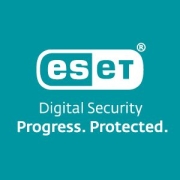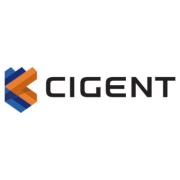Endpoint Encryption ensures data on devices is secure, protecting sensitive information from unauthorized access. It encrypts files on laptops, desktops, and other devices, making data accessible only to authorized users.
As data breaches become more sophisticated, Endpoint Encryption provides a robust method for safeguarding information. This technology encrypts data at rest, ensuring only individuals with decryption keys can access it. This layer of security is vital for organizations managing sensitive customer data, financial records, or intellectual property. The adaptability and scalability of Endpoint Encryption make it suitable for various industries, offering peace of mind in an increasingly digital landscape.
What are the critical features of this solution?In finance, Endpoint Encryption is implemented to protect sensitive client data and transaction records. Healthcare providers use it to secure patient data and comply with regulations like HIPAA. Educational institutions apply these solutions to safeguard academic records and personal information of students and staff.
Endpoint Encryption is essential for organizations aiming to protect sensitive data across devices. It enables businesses to maintain data integrity and security, offering a secure environment for data use and transfer.



































Endpoint encryption is the encryption of data used to protect sensitive information as it moves from one endpoint to another. To encrypt information, data is encoded or scrambled, so that it can not be deciphered, read, or usable unless a user has its unique decryption key. Endpoint encryption secures an operating system from corrupted boot files to ensure unauthorized users cannot access protected data. Some of the most common information that is usually encrypted include bank account numbers, healthcare files, social security numbers, and home addresses.
Endpoint encryption is important because it provides layers of defense that safeguard organizations from cyber threats, large or small. It provides an additional layer of visibility into the threat landscape to understand the root cause of endpoint attacks. The goal of endpoint protection and encryption is to provide security from malware attacks, to gain insight into malicious activities and behaviors, and to provide the capabilities needed to investigate and remediate threats and incidents.
End-to-end security is the method by which endpoint encryption and security measures are used to protect endpoints when communications are transmitted from one end to another. It adds an additional security layer to an organization's security infrastructure. End-to-end security is a key component of a business's infrastructure because it defends against data theft, prevents data loss, and protects systems and servers from external attackers.
A virtual private network, or VPN, is encrypted but does not provide end-to-end encryption. A VPN is an encrypted tunnel that connects your computer to a network and ensures that no one who intercepts your internet signal can decode that data. It uses different types of encryption methods, including public-key encryption, symmetric encryption, AES encryption, and transport layer security. It encrypts your connection from your device to the VPN server, but does no more than just that.
Endpoint Encryption is crucial for protecting sensitive data transmitted across networks, stored on local drives, and shared on external devices. It ensures that only authorized users can access the information, reducing the risk of unauthorized access, data breaches, and compliance violations. Encrypting endpoints helps maintain the confidentiality and integrity of critical business data.
What are the most common types of Endpoint Encryption solutions?Common types of Endpoint Encryption solutions include full-disk encryption, file and folder encryption, and removable media encryption. Full-disk encryption protects everything on a device's hard drive, while file and folder encryption safeguards specific files or directories. Removable media encryption secures data on portable storage devices, such as USB drives. Each type offers unique benefits and security levels depending on your organization's needs.
How does Endpoint Encryption enhance compliance with data protection regulations?Endpoint Encryption plays a vital role in helping organizations meet data protection regulations like GDPR, HIPAA, and CCPA. By ensuring that data on endpoints is encrypted, organizations can demonstrate proactive measures to protect personal and sensitive information. Encryption strengthens compliance efforts by addressing specific regulatory requirements regarding data security and privacy.
What challenges might organizations face when implementing Endpoint Encryption?Implementing Endpoint Encryption can present challenges such as integration with existing systems, user acceptance, and managing encryption keys. To address these issues, you need to evaluate specific business requirements, select suitable encryption technology, and provide user training. Managing encryption keys is critical to maintaining access control and ensuring business continuity, requiring robust key management practices.
How can organizations effectively manage encryption keys for endpoints?Effective encryption key management requires adopting centralized key management solutions that offer secure key storage, access control, and audit capabilities. Automating key lifecycle management, including key generation, distribution, rotation, and revocation, ensures efficiency and minimizes human errors. You should establish strict policies and procedures around key management to prevent unauthorized access and ensure the availability of encrypted data.